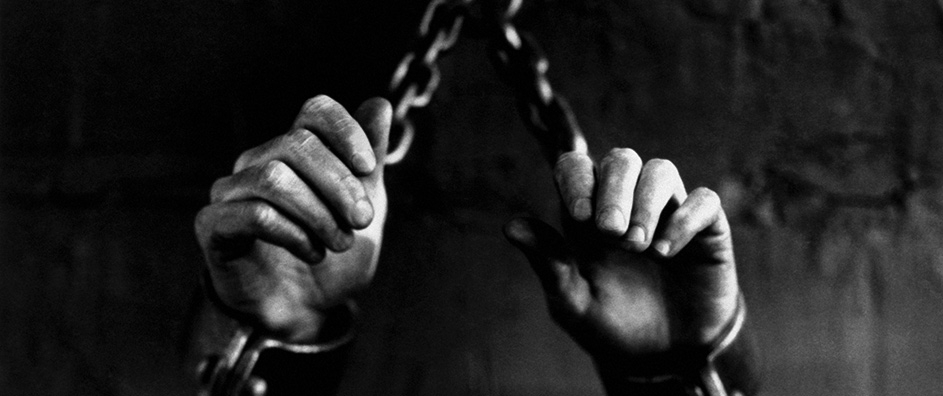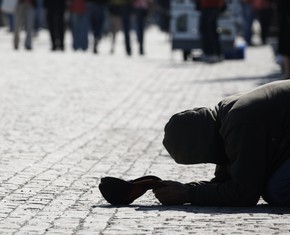The views expressed in our content reflect individual perspectives and do not represent the authoritative views of the Baha'i Faith.
Throughout history, slaves have longed for their freedom. You could say that each of them offered up a prayer for freedom from the very depths of their oppressed souls.
The founder of the Baha’i Faith, Baha’u’llah, wrote a prayer of freedom for all slaves, which this article makes public here for the first time with an official, authorized translation.
Everyone can now read, share, meditate upon, and cite with confidence this groundbreaking, authentic and accurate document. Even better, the original Arabic text of Baha’u’llah’s prayer can be downloaded at the end of this article.
We originally announced its discovery in the BahaiTeachings.org article “The Baha’i Prayer that Freed the Slaves,” on March 25, 2014. That article featured a provisional translation by Nader Saiedi, UCLA’s Taslimi Foundation Professor of Baha’i Studies.
The Universal House of Justice, on September 2, 2014, released an official, authorized translation of the prayer in which Baha’u’llah liberated Mubarak. Here it is:
Glorified art Thou, O Lord my God! Behold how one slave hath stood at the door of another, seeking from him his freedom, and this despite the fact that his owner is himself but Thy thrall and Thy servant, and is evanescent before the revelations of Thy supreme Lordship. I testify at this moment, as I stand before Thee, to that which Thou didst testify to Thyself by Thyself, that verily Thou art God and there is none other God but Thee. From everlasting Thou hast inhabited the loftiest heights of power, might and majesty, and wilt, to everlasting, continue to abide in the sublimity of Thy glory, awe and beauty.
All kings are as vassals before the gate of Thy grace, the rich are but destitute at the shore of Thy sacred dominion, and all great ones are but feeble creatures within the court of Thy glorious bounty. How, then, can this thrall claim for himself ownership of any other human being? Nay, his very existence before the court of Thy might is a sin with which no other sin in Thy kingdom can compare. Glorified, immeasurably glorified, art Thou beyond every description and praise.
O my God! Since he hath asked this servant for his freedom, I call Thee to witness at this moment, that I verily have set him free in Thy path, liberated him in Thy name, and lifted from his neck the shackles of servitude, that he may serve Thee in the daytime and in the night-season, whilst I pray that Thou mayest never free mine own neck from the chain of Thy servitude. This verily is my highest hope and supreme aspiration, and to this Thou Thyself art a mighty witness. — Baha’u’llah
See the original Arabic and full translation here: Mubarak Prayer
The Universal House of Justice provided this additional information as well:
The prayer appears to have been revealed by Baha’u’llah during His sojourn in Baghdad. The Research Department has reported that it was revealed in response to a request from a servant of Baha’u’llah, Mubarak—not to be confused with Haji Mubarak, the well-known servant of the Bab—who asked Baha’u’llah to manumit him. You are free to quote this prayer in articles and other published works, and to share it with the friends as you deem appropriate.
In the previous article, we gave a tentative date of 1839 for this prayer. The Research Department has offered another theory as to the date of this Tablet/prayer, and obviously it will require more research to fully reconstruct the circumstances when Baha’u’llah granted Mubarak his freedom. What is certain, from internal evidence, is that Mubarak asked for his freedom, and it was granted by Baha’u’llah.
But there’s more to this story.
The reader will recall that Mubarak originally was the slave of Baha’u’llah’s father, Mirza Buzurg. According to Abdu’l-Baha, Baha’u’llah liberated his father’s slaves upon the latter’s death in 1839:
My grandfather [Baha’u’llah’s father] had many colored maids and servants. When the Blessed Perfection [Baha’u’llah] became the head of the family he liberated all of them, and gave them permission to leave or stay, but if they desired to remain it would, of course, be in a different manner. However, all of them, reveling in their new found freedom preferred to leave, except Esfandayar [Isfandiyar], who remained in the household and continued to serve us with proverbial faithfulness and chastity. — Abdu’l-Baha, Star of the West, volume 9 (April 28, 1928), number 3, page 38.
So any theory regarding the date of the prayer that liberated Mubarak somehow has to take Abdu’l-Baha’s comments into account.
These historic, tradition-demolishing acts, comparable to Abraham’s destruction of the idols of old, set the Baha’i Faith on its revolutionary path toward the unification of humanity.
You May Also Like
Comments

















These historic, tradition-demolishing acts, comparable to Abraham’s destruction of the idols of old, set the Baha’i Faith on its revolutionary path toward the unification of humanity."
Also true [?] that Muhammad shattered the idolatrous statues in the Kaaba, no?
These historic, tradition-demolishing acts, comparable to Abraham’s destruction of the idols of old, set the Baha’i Faith on its revolutionary path toward the unification of humanity."
Also true [?] that Muhammad also shattered the idolatrous statues in the Kaaba, no?